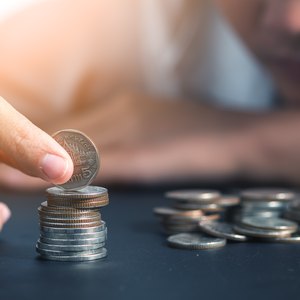
Choosing a shiny new car can be an exhilarating experience, but some would-be car buyers end up with buyer's remorse even before they drive the car off the lot or sign the final paperwork. A deposit is the dealer's way of binding you to the purchase, and ensures that the dealer won't sell the car to someone else. You don't typically have to buy the car after paying the deposit, but you might not get your money back.
Tips
Sometimes you may need to put down a deposit on a vehicle you want. Even if it is a binding deposit, you are not required to purchase the car, but you may not get your deposit back. You might be able to negotiate with the dealer to hold your deposit toward a future purchase or future deposit.
Binding Deposit
You pay a binding deposit when you promise to buy the car. You might do this, for example, if the car you want is on back order or if you're waiting to hear back from your bank about financing. With a binding deposit, the car dealership will keep your money if you decide not to buy the car. You're under no obligation to complete the purchase, but the prospect of losing your deposit might hold you to your decision.
Nonbinding Deposit
With a nonbinding deposit, you have the option of getting a refund if you opt not to buy the car. This might occur if you agree to leave a deposit with the dealership to get it to hold the car for a brief period without signing a contract. But a deposit can also become nonbinding if the dealership doesn't meet the legal requirements for a sale. If there's not a contract or the dealer doesn't make the terms of your agreement clear, your deposit is likely not binding. You could still end up fighting with the dealership over refunding your deposit but could win in court in either case. No matter how a fight over a nonbinding deposit turns out, though, you're not legally required to buy the car.
Contract Issues
Any agreement you sign with your dealer is legally binding, and if you sign a contract indicating that you agree to purchase the car, you're on the hook for the purchase. Most car-buying contracts have clauses indicating specifically when you can abandon the purchase. For example, if the car is not as described or financing falls through, you can often back out of the purchase, but it's unlikely you'll get your deposit back.
Negotiating a Refund
If you've paid a binding deposit and then choose not to purchase the car, the first step is to try to negotiate with the car dealership. You might be able to apply your deposit to the purchase of another car at the dealership. Alternatively, you might be able to negotiate with the dealer to hold your deposit toward a future purchase or refund a portion of the deposit. However, your dealer is under no obligation to negotiate with you, in which case you might lose the deposit.
References
Writer Bio
Van Thompson is an attorney and writer. A former martial arts instructor, he holds bachelor's degrees in music and computer science from Westchester University, and a juris doctor from Georgia State University. He is the recipient of numerous writing awards, including a 2009 CALI Legal Writing Award.

